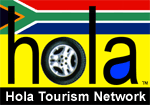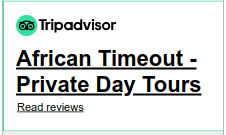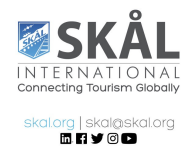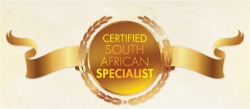Every traveller to South Africa must be in possession of a valid passport and, where necessary, a visa.
The Immigration Act, 2002 (Act 13 of 2002), stipulates that all visitors to South Africa are required to have a minimum of two blank pages (both back and front) in their passport to enable the entry visa to be issued.
If there is insufficient space in the passport, entry will be denied.
Enquiries can be directed to South African diplomatic representatives abroad or to the Department of Home Affairs in Pretoria. Visas are issued free of charge. Visitors who intend travelling to South Africa's neighbouring countries and back into South Africa are advised to apply for multiple-entry visas. Passport-holders of certain countries are exempt from visa requirements. Tourists must satisfy immigration officers that they have the means to support themselves during their stay and that they are in possession of return or onward tickets. They must also have valid international health certificates.
Visitors from the yellow-fever belt in Africa and the USA as well as those who travel through or disembark in these areas, have to be inoculated against the disease.
Malaria is endemic to parts of KwaZulu-Natal, Mpumalanga and Limpopo. It is essential to take precautions when visiting these areas.
Foreign tourists visiting South Africa can have their Value-Added Tax (VAT) refunded, provided the value of the items purchased exceeds R20.
VAT is refunded on departure at the point of exit.
South Africa's transport infrastructure airlines, railroads, roads, luxury touring buses (coaches) and motor cars is such that tourists can travel comfortably and quickly from their port of entry to any part of the country. A number of international airlines, including SAA, operate regular scheduled flights to and from South Africa. Several domestic airlines operate in the country. There are also mainline trains to all parts of the country.
Accommodation
The tourist accommodation industry in South Africa provides a wide spectrum of accommodation, from formal hotels to informal holiday flats and cottages, game lodges and reserves, guest-houses, youth hostels and bed-and-breakfast establishments.
A variety of promotional material on South Africa is available. Comprehensive guides and maps cover all the regions and aspects of interest to tourists, including accommodation. Various useful tourism websites can be found on the Internet.
The Tourism Grading Council of South Africa (TGCSA) inspects the standards in the hospitality and accommodation industry.
This voluntary grading system, which was launched in 2001, uses internationally recognised star insignia to rate accommodation establishments initially, and will be extended to include relevant businesses in classified sectors of the tourism industry. Once graded, establishments will be encouraged to utilise the star system for marketing and advertising purposes.
Since its inception in 2001, the TGCSA has been directly responsible for an additional R76,5 million being invested in hotels, lodges, guest-houses, and bed-and-breakfast and self-catering establishments.
Grading assessors undergo training to receive the National Certificate in Tourism Grading. The awarding of such a qualification is a world-first. Assessors are then accredited with the THETA and registered with the TGCSA before being recommended to the industry. Larger group hotels with their own internal assessors will also be accredited with the THETA. Independent auditors conduct random audits. These auditors also assist in ensuring that the assessors adhere to a Code of Conduct.
Star grading is the only system recognised by government and the TBCSA.
National grading criteria are expected to be introduced for the MICE, caravan and camping, and food and beverage sectors.
Tourist guiding is a very critical component of the tourism value chain. They play an essential role in ensuring repeat tourist visitation to South Africa through creating a positive image of our country.
 In South Africa, tourist guiding is a regulated profession governed by national legislation and policies. Any person that would like to become a tourist guide must undergo training as part of a formal qualification registered by the South African Qualifications Authority (SAQA), Upon being deemed competent, such person will receive a certificate issued by the Culture, Arts, Tourism Hospitality and Sports Sector Education and Training Authority (CATHSSETA), Such person must then apply to the relevant Provincial Registrar to be registered in order to operate legally. This process unfolds as prescribed in the Tourism Act, 2014 and the Regulations in respect of Tourist Guides, 1994 and 2001 respectively.
In South Africa, tourist guiding is a regulated profession governed by national legislation and policies. Any person that would like to become a tourist guide must undergo training as part of a formal qualification registered by the South African Qualifications Authority (SAQA), Upon being deemed competent, such person will receive a certificate issued by the Culture, Arts, Tourism Hospitality and Sports Sector Education and Training Authority (CATHSSETA), Such person must then apply to the relevant Provincial Registrar to be registered in order to operate legally. This process unfolds as prescribed in the Tourism Act, 2014 and the Regulations in respect of Tourist Guides, 1994 and 2001 respectively.
South Africa will be one of the first countries in the world to have national grading criteria for the MICE venues sector.
According to Backpacker Tourism of South Africa, South Africa is the second most popular destination among international backpackers, after Australia.
Tourist safety
South African Tourism has launched several initiatives aimed at ensuring the safety of travellers to the country.
These include a partnership initiative with the oil company Engen and the Tourism Information and Safety Call Line, 083 123 2345, which provides tourists with information on what to do in an emergency and where to locate services.
The Department of Environmental Affairs and Tourism has established the National Tourism Safety Network, a multistakeholder forum comprising provincial representatives, the South African Police Service, metro police, organised local government, community policing structures, South African Tourism and other key stakeholders.
Source: South Africa Yearbook
Editor: D Burger. Government Communication and Information System









